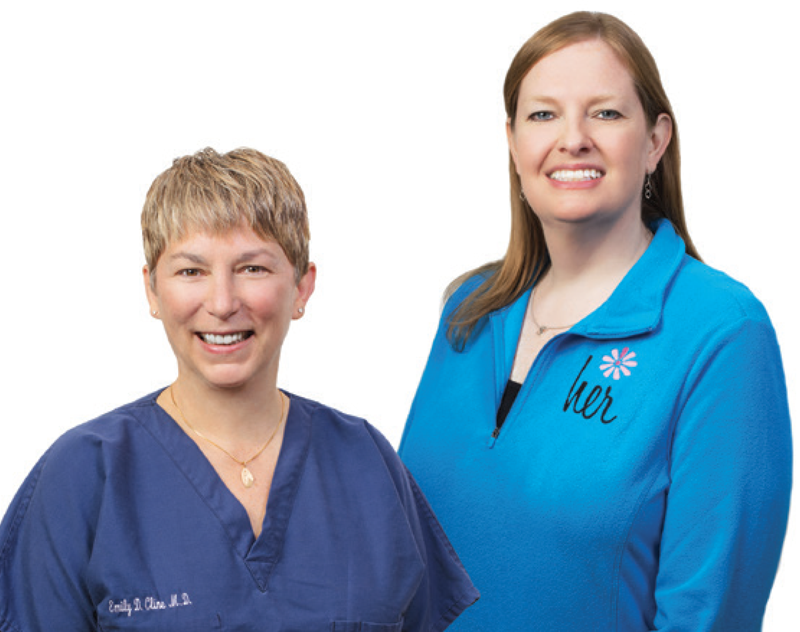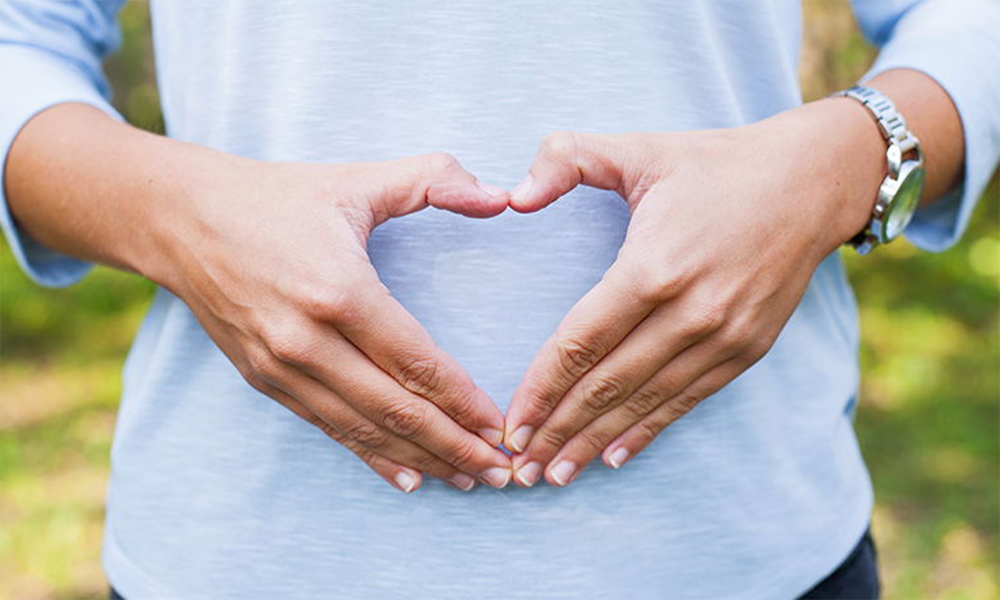JMH Phasing Out Maternity Care Services Over the Next Several Months LEARN MORE

One Place for Women
In today's busy world, it isimportant that women find their care in one convenient place. The JMH Women's Health Specialists invite you to HER - a program to help you reach your potential by coordinating all your healthcare resources.
The HER Team
Emily D. Cline, M.D. (left) is board certified in obstetrics and gynecology. While currently practicing gynecology only, she is committed to caring for women of all ages, with a special interest in urinary incontinence, pelvic support problems and minimally invasive GYN surgery. Dr. Cline is also available to manage your annual exams, contraceptive management, treatment of menopause symptoms and other routine GYN needs. At the core of this service is Sandi Stinson, CMA, your HER Care Coordinator, who directs you to the resources you need.
MEET EMILY CLINE, MD
Fill Out Our Form
Featured Care
Help for Bladder, Bowel Conditions
Johnson Memorial Health's Care for HER offers Axonics Therapy, a clinically proven solution for treating symptoms of bladder and bowel issues. See how Axonics can improve a woman's quality of life - without surgery:

Surgical Advancement for Women
vNOTES (vaginal natural orifice transluminal endoscopic surgery) is an advanced minimally invasive gynecologic procedure using the vagina as a surgical access route. The vNOTES technique is most commonly used on women needing a:
- Hysterectomy
- Salpingectomy
- Oophorectomy
- Cystectomy

HER Topics
Endometriosis
Endometriosis is an often painful condition in which tissue that is similar to the inner lining of the uterus grows outside the uterus. It often affects the ovaries, fallopian tubes and the tissue lining the pelvis. Rarely, endometriosis growths may be found beyond the area where pelvic organs are located.
By the Numbers
- One in 10 reproductive women have endometriosis, according to the Endometriosis Foundation Association.
- Endometriosis affects people mostly in their reproductive years (aged 12-52) and can even affect those in their youth.
- On average, there is a 7-10-year delay in diagnosis.
- Endometriosis is one of the leading causes of infertility.
- It is most commonly diagnosed in women in their 30s and 40s.
- 190 million women and girls from around the world live with signs and symptoms of this condition.
Women's Incontinence
Don’t let a leaky bladder stop you from living life to its fullest. The condition isn’t necessarily just a part of aging and can often be easily treated. If you suffer urinary incontinence or have any concerns about your pelvic health, now there’s a singular resource to help you get answers with no physician referral required.
By the Numbers
- Of the 25 million adult Americans suffering from some form of urinary incontinence, 75 to 80% of those are women.
- Stress urinary incontinence, the most prevalent form of incontinence among women, affects an estimated 15 million adult women in the U.S.
- About 17% of women and 16% men over 18 years old have overactive bladder (OAB) and an estimated 12.2 million adults have urge incontinence.
- Between the ages of 18 and 44, approximately 24% of women experience incontinence.
- For women over age 60, approximately 23% deal with incontinence.
Pelvic Health
Pelvic Health is the best possible functioning and management of the bladder, bowel, and reproductive organs. It is not merely the absence of disease or weakness in these organs. Pelvic health plays an important role in complete physical, mental, social and sexual well-being.
By the Numbers
- The proportion of women who reported at least one pelvic floor disorder increased with age: 9.7% of women aged 20 to 39 years, 26.5% of women aged 40 to 59 years, 36.8% of women aged 60 to 79 years, and 49.7% of women 80 or older.
- Nearly 24% of U.S. women are affected with one or more pelvic floor disorders.
- Underweight and normal-weight women were less likely to have a pelvic floor disorder (15.1%) than were overweight women (26.3%) and obese women (30.4%).
- The prevalence of pelvic floor disorders also varied with the number of times a woman had given birth: 12.8% for women who had never given birth, 18.4% of women who had one child, 24.6% of women who had two children, and 32.4% for women who had three or more children.

